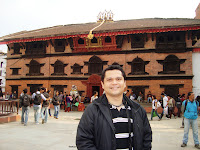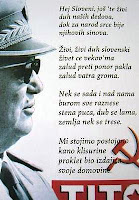The Durbar Square in Kathmandu
 Kathmandu Durbar Square is the plaza opposite the old royal palace in the three main cities in the Kathmandu Valley in Nepal: Kathmandu, Patan and Bhaktapur. The square is filled with temples, and is a UNESCO World Heritage Site. The Durbar square is surrounded by spectacular architecture and vividly showcases the skills of the Newari artists and craftsmen over several centuries. The royal palace was originally situated at Dattaraya square and was only later moved to the Durbar square location.
Kathmandu Durbar Square is the plaza opposite the old royal palace in the three main cities in the Kathmandu Valley in Nepal: Kathmandu, Patan and Bhaktapur. The square is filled with temples, and is a UNESCO World Heritage Site. The Durbar square is surrounded by spectacular architecture and vividly showcases the skills of the Newari artists and craftsmen over several centuries. The royal palace was originally situated at Dattaraya square and was only later moved to the Durbar square location.The Kathmandu Durbar Square holds the palaces of the Malla and Shah kings who ruled over the city. Along with these palaces, the square also surrounds quadrangles revealing courtyards and temples. The square is presently known as Hanuman Dhoka, a name derived from the statue of Hanuman, the monkey devotee of Lord Ram, near the entrance of the palace. The preference for the construction of royal palaces at this site dates back to as early as the Licchavi period in the third century. Even though the present palaces and temples have undergone repeated and extensive renovations and nothing physical remains from that period, names like Gunapo and Gupo, which are the names referred to the palaces in the square in early scriptures, imply that the palaces were built by Gunakamadev, a king ruling late in the tenth century.
When Kathmandu City became independent under the rule of King Ratna Malla (1484-1520) the palaces in the square became the royal palaces for its Malla kings. When Prithvi Narayan Shah invaded the Kathmandu Valley in 1769, he also favored the Kathmandu Durbar Square for his palace. Other subsequent Shah kings continued to rule from the square until 1896 when they moved to the Narayan Hiti Palace. However, the square is still the center of important royal events like the coronation of King Birendra Bir Bikram Shah in 1975 and King Gyanendra Bir Bikram Shah in 2001.






